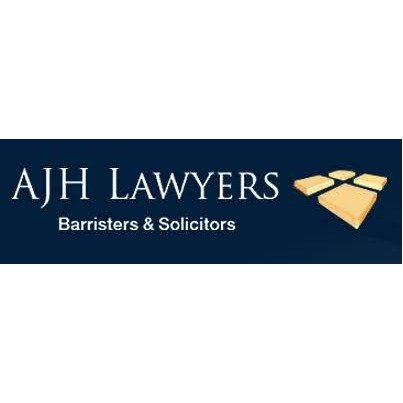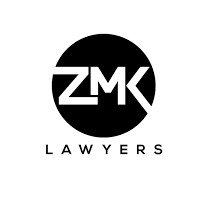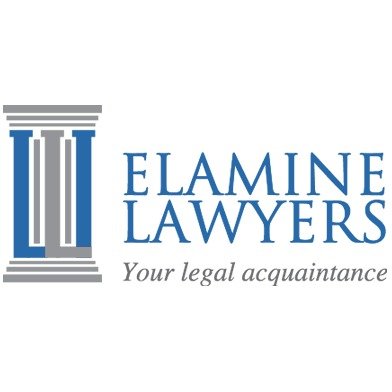Best Renewable & Alternative Energy Lawyers in Melbourne
Share your needs with us, get contacted by law firms.
Free. Takes 2 min.
List of the best lawyers in Melbourne, Australia
About Renewable & Alternative Energy Law in Melbourne, Australia
Renewable and alternative energy law in Melbourne spans various legal areas that support the transition to cleaner energy sources. Renewable energy in this context refers to energy generated from sources that are naturally replenished, such as solar, wind, hydro, and geothermal power. Alternative energy may also include low-emission technologies that are not strictly classified as renewable. The Victorian government, along with local councils in Melbourne, is committed to increasing the adoption of these technologies to reduce greenhouse gas emissions, improve energy security, and foster sustainable development. Legal frameworks govern everything from project approval and land use to contracts, subsidies, and environmental impacts.
Why You May Need a Lawyer
Engaging a lawyer specializing in renewable and alternative energy can be essential for both individuals and businesses. Some common scenarios include:
- Securing permits and licences for renewable energy installations, such as solar panels or wind turbines
- Navigating environmental compliance and impact assessments for energy projects
- Negotiating power purchase agreements or supplier contracts
- Resolving disputes over grid connection or land use
- Understanding and maximizing government incentives or rebates for renewable energy projects
- Managing the legal implications of energy project financing and investments
- Interpreting zoning or planning restrictions related to renewable energy developments
Local Laws Overview
Melbourne, as part of Victoria, is subject to both state and local regulations regarding renewable and alternative energy. Key aspects include:
- Victoria's Renewable Energy Target, which mandates an increasing share of energy from renewable sources
- Planning and Environment Act 1987, outlining land use and development controls for energy projects
- Electricity Industry Act 2000 and Energy Safe Victoria for regulatory oversight of generation and distribution
- Building codes and fire safety standards for the installation of solar panels and batteries
- Victorian government incentive programs, such as rebates and feed-in tariffs for solar power systems
- Local council by-laws that may set additional requirements or restrictions on renewable installations
Understanding how these laws intersect can be complex, particularly when projects require approval from multiple authorities or involve novel technology.
Frequently Asked Questions
What types of renewable energy projects are common in Melbourne?
Solar power is the most common, both residential and commercial. Wind turbines and small-scale hydro are also present, along with increasing interest in community battery projects.
Do I need council approval to install solar panels on my home?
Most residential solar panel installations do not require planning permits if they meet basic criteria, but there can be exceptions for heritage or multi-dwelling properties. It is best to check with your local council.
Are there financial incentives for installing renewable energy systems?
Yes, the Victorian government offers rebates and subsidies for eligible solar panel and battery installations. Federal incentives may also apply.
Can businesses feed excess electricity back into the grid?
Yes, businesses can enter into agreements with energy retailers to receive payment for surplus renewable energy fed into the grid, known as feed-in tariffs.
What are the environmental assessment requirements for large energy projects?
Major renewable projects may require comprehensive environmental impact assessments under state legislation, particularly if they affect sensitive areas.
Are there restrictions on wind turbine installations?
Yes, there are minimum setback distances from dwellings and specific requirements regarding noise and environmental impact, set by both state and local authorities.
Is it legal to store energy using batteries at home?
Yes, energy storage is legal and increasingly popular. However, there are safety standards and electrical codes that must be followed.
What should I do if my solar installer did not complete the work as agreed?
You should seek legal advice about contractual remedies and may be able to lodge a complaint with Consumer Affairs Victoria or the Victorian Civil and Administrative Tribunal.
Can renters benefit from renewable energy?
Yes, with landlord permission. There are government programs encouraging landlords to invest in solar for rental properties to benefit tenants.
How can neighbourhoods work together on shared renewable projects?
Community energy projects, such as shared solar or battery schemes, are legal but involve complex cooperative and contractual arrangements. Legal guidance ensures proper structure and risk management.
Additional Resources
For further support and information, consider contacting or consulting:
- Victorian Department of Energy, Environment and Climate Action
- Energy Safe Victoria for guidelines on safe installation
- Sustainability Victoria for advice and rebate information
- Clean Energy Council for accredited providers and best practices
- Consumer Affairs Victoria for dispute resolution and enforcement
- Local Melbourne councils for planning and regulatory guidance
Next Steps
If you are planning a renewable or alternative energy project or facing legal questions in this field, start by:
- Identifying the type and scale of your project or issue
- Researching relevant state and local regulations, including any permits required
- Contacting your local council for specific planning or zoning requirements
- Seeking out a lawyer experienced in renewable and alternative energy law to guide you through approvals, contracts, or compliance issues
- Documenting all relevant correspondence, contracts, and approvals in writing for future reference
A legal professional can help you understand your rights and obligations, avoid costly mistakes, and ensure your project proceeds smoothly and in line with Melbourne and Victorian law.
Lawzana helps you find the best lawyers and law firms in Melbourne through a curated and pre-screened list of qualified legal professionals. Our platform offers rankings and detailed profiles of attorneys and law firms, allowing you to compare based on practice areas, including Renewable & Alternative Energy, experience, and client feedback.
Each profile includes a description of the firm's areas of practice, client reviews, team members and partners, year of establishment, spoken languages, office locations, contact information, social media presence, and any published articles or resources. Most firms on our platform speak English and are experienced in both local and international legal matters.
Get a quote from top-rated law firms in Melbourne, Australia — quickly, securely, and without unnecessary hassle.
Disclaimer:
The information provided on this page is for general informational purposes only and does not constitute legal advice. While we strive to ensure the accuracy and relevance of the content, legal information may change over time, and interpretations of the law can vary. You should always consult with a qualified legal professional for advice specific to your situation.
We disclaim all liability for actions taken or not taken based on the content of this page. If you believe any information is incorrect or outdated, please contact us, and we will review and update it where appropriate.












